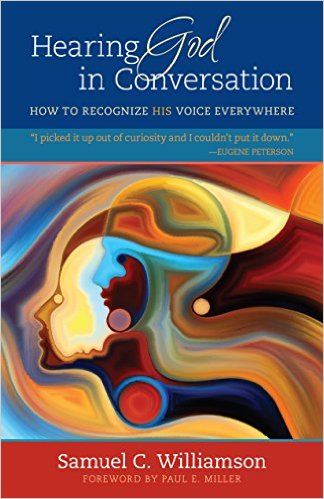|
I
Was Ashamed of Myself
.
by Sam Williamson
I was small for my age. When I graduated from
high school, I was 5 feet 7 inches and 120
pounds. (I added 2 inches and 25 pounds in the
first two years of college.) In middle school, I
was even smaller. When I was twelve, my younger
(but taller) sister and a friend of hers began
to chant, “Sam is short, shorty-pants,
skinny-pants, dinky Sam!” And I slugged
her.
My dad witnessed it. He never moved quicker in his
life. He hustled me to his office as fast as a
speeding bullet and sat me on a sofa. And then
time slowed down. With surprising gentleness, he
whispered, “Are you ashamed of yourself? You
should be.”
And I was ashamed. Ever-so-much. He asked
me what my shame felt like, and I said:
- I’m embarrassed that I’m so short and
skinny;
- I’m mortified that I erupted in anger, and
horrified that I hit someone younger than me;
- I’m humiliated that my sister’s friend saw
me do it, and I’m scared because you did too;
- I feel stupid, weak, dirty, and ashamed.
My dad began to weep. I did too. My dad then told
me that when Jesus was on the cross, he not only
took our punishment, he took our shame. He
said that the only way to rid ourselves of
the sense of shame is to see Jesus absorbing into
himself all the disgrace we’ve ever felt.
He asked me to pray each point of shame to God,
and give it to him, as in, “Jesus, I’m embarrassed
that I’m so small; did you take that on the cross?
I feel stupid and dirty; did you absorb that too?
I’m ashamed that I hit my sister; did you also
receive that for me?”
It was the first time in my life I ever deeply
worshiped God.
Agnostic Advice
Will Fail Us
Shame is one of the more debilitating traumas
experienced by humans. Over the last thirty years,
the book industry has exploded with solutions to
combat its self-destructive spiral.
And yet the epidemic of shame is exploding even
faster. Ask any group of westerners if they feel
much guilt in their lives, and you’ll see few
raised hands. Ask them if they feel shame, and
every hand will shoot skyward. Except those too
ashamed to admit it.
Secular writers prescribe solutions to our shame:
be self-compassionate, grab hold of self-esteem,
practice positive thinking, and recast the stories
we tell about ourselves.
Despite the rising tide of books and advice, we
remain awash in shame. Why? It’s because these
answers are agnostic—not anti-God but devoid of
God—and shame is deeply spiritual.
Worship
Dan Allender said, “Shame is an excellent path to
exposing … where we believe life can be found.
It unearths the strategies we use to deal with a
world that is not under our control.”
When I was twelve, I thought “life could be found”
by being taller or stronger. After hitting my
sister, I thought “life could be found” by being
more self-controlled. In the absence of those life
givers, I felt shame. Worship is what we ascribe
ultimate value to; anything we turn to find life
is the object of our worship.
In other words, I slogged my way into a swampland
of shame through worship, and the only way out of
my shame was to change my worship. Thomas Chalmers
said it like this, “The only way to dispossess the
heart of an old affection is by the expulsive
power of a new one.”
Agnostic therapists advise, “Reject shame, just
banish it, and practice self-compassion.” But that
counsel doesn’t work. And it never will. Shame is
essentially spiritual and so is its solution.
My dad advised, “Pray your shame to God, every
sliver, each shard, and see Jesus absorb into his
being all your humiliation, rejection, and
inadequacy. See him soak up your shame until it’s
gone.” Jesus prayed the psalms every day. He would
have prayed this verse a thousand times:
Uphold me according to your promise,
that I may live, and let me not be put to shame
in my hope! (Psalm 119:116)
But Jesus was put to shame, even though he
alone deserved none. He publicly infused our
dishonor and nakedness, that we need never fear
disgrace again. On the cross he cried to the
Father, “Give to them that promise of Psalm 119,
and give to me their shame.”
Sam
P. S. Many victims of trauma (especially sexual
assault) feel shame for their past. But just as
guilt can be true or false, so too shame can be
true or false. Scripture is clear: we are not
held responsible when we are sinned against.
For some of us, it is enough to know we are not
guilty for those assaults. But for others, we
still feel their shame, and secular answers have
failed.
Even in false shame, worship can be our greatest
ally. Jesus took on himself our real shame
(by absorbing into himself all our sense of
dirtiness) but he also took our false shame
(he was horribly mistreated by the very
authorities who were supposed to protect people).
He was lynched for his love for us.

Sam Williamson has published
numerous articles and has written two books.
He has a blog site, www.beliefsoftheheart.com,
and can be reached at
Sam@BeliefsoftheHeart.com.
Hearing
God in Conversation: How to Recognize
His Voice Everywhere, by Samuel C.
Williamson, published by Kregel
Publications, 2016, available from Amazon
|

